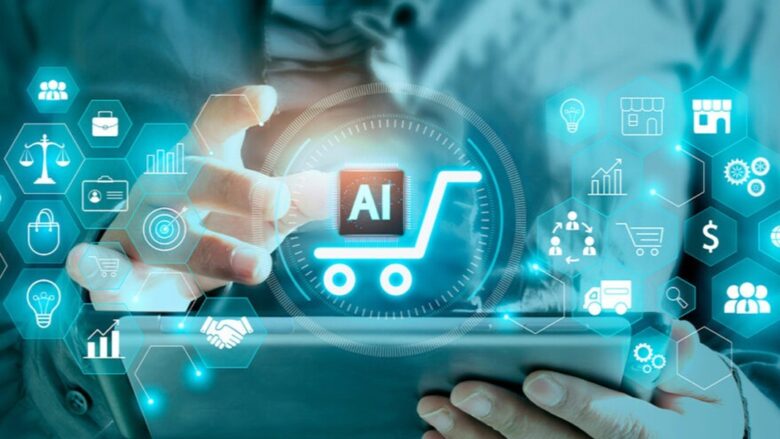AI can help marketers work more efficiently and gain a deeper understanding of their audience, leading to hyper-personalization at scale that drives increased sales and customer engagement.
AI can also automate repetitive marketing tasks, freeing marketing teams to focus on more creative work. This process automation reduces human error and saves time.
1. Artificial Intelligence
Artificial Intelligence (AI) is an advanced technology capable of automating repetitive tasks, personalizing content creation and personalization processes, and mining large datasets for insights. By employing AI-powered marketing strategies to save time and resources while expanding online presence and brand credibility.
AI can detect patterns in customer data to predict what products, services or content customers will require in the future, which allows you to craft targeted win-back campaigns designed to retain high-value customers. Furthermore, it can analyze churn and retention rates to make predictions as to who may cancel subscriptions or stop purchasing products so you can offer personalized offers and messaging to them before it’s too late!
Digital marketers must possess a thorough knowledge of AI’s limitations and risks so they can avoid unintended outcomes. Facial recognition software tends to favor lighter skin tones, furthering racial biases; and some consumers may perceive AI-generated messaging as inauthentic or impersonal. To prevent issues like these from emerging, digital marketing teams should test AI tools on a smaller scale before fully incorporating them into their core strategies.
2. Machine Learning
Machine learning is a subset of artificial intelligence (AI). It allows computers to analyze data without being programmed and make predictions that improve with time – making it perfect for tasks too complex or repetitive to be automated using traditional solutions like code.
AI can assist marketers in understanding customer preferences and creating personalized content for them. AI also simplifies processes, eliminates manual work, and frees up time so marketing teams can focus on more strategic activities.
For instance, machine learning (ML) can identify the optimal times and ways to contact prospective customers as well as predict their likelihood of becoming clients based on purchase history, website behavior and more. With this data at hand, ML allows advertisers to create more relevant ads which resonate more strongly with target consumers.
Retargeting also works to tailor an individual customer’s online experience by anticipating what products and services will be of most interest, providing them with tailored shopping experiences, such as Netflix, Amazon and Spotify recommending certain items to users – this form of retargeting has proven extremely successful at driving sales while simultaneously decreasing churn rates.
3. Natural Language Processing
Natural Language Processing (NLP) is an area of artificial intelligence which enables computers to comprehend human speech. NLP employs machine learning techniques as well as linguistic rules in order to decipher meaning or context of text or speech from computers and systems, including sentiment analysis, text classification, machine translation, chatbot creation and many other technologies.
NLP tools have become an integral component of digital marketing as they allow businesses to efficiently analyze unstructured data and information. NLP applications enable companies to produce more customized content, enhance customer service and automate tasks more efficiently.
NLP algorithms can assist marketers with understanding customer intent and needs to better tailor campaigns and identify hot leads. This can be accomplished via voice search or visual search, chatbots that use NLP for customer query collection and providing relevant responses, or using NLP itself for hot lead identification.
NLP can assist businesses in managing large volumes of unstructured data by performing text-heavy functions such as keyword extraction and entity recognition. This helps streamline processes while providing marketers with greater insight into their data analysis efforts.
4. Deep Learning
Artificial intelligence in digital marketing is revolutionizing the industry in many ways, from meeting organizational objectives and driving growth, to staying abreast of emerging technology trends and trendsetters. But to reap its full potential effectively, marketers must have a firm grasp on this technology so it can be implemented efficiently.
Artificial Intelligence can assist companies in crafting more targeted campaigns by identifying customers who are most likely to purchase products or services. AI can also be used to predict their value by analyzing data points such as purchases, browsing history and behavior patterns – this data then being utilized to select an ideal marketing strategy and content approach for each individual customer.
Artificial intelligence can also streamline tasks that marketers find time-consuming or tedious, such as writing pay-per-click ads and setting up email workflows, leaving more time for strategy and creativity. Furthermore, this form of AI can improve customer service by creating virtual assistants who can answer customer inquiries around the clock.
5. Robotic Process Automation
Robotic Process Automation is an established productivity tool, freeing humans from tedious data entry tasks so they can focus on more strategic work. RPA allows marketing teams to increase capacity without creating internal friction among employees.
RPA software utilizes scripts that interact with applications to complete transactions steps in an easy manner, unlike other automation solutions which require extensive system integration. RPA solutions tend to be fast to deploy and update quickly – an essential feature for enterprises who must respond rapidly to changing business needs.
As opposed to human employees, bots are far less prone to errors. They follow the rules set up for them and provide an audit trail history of each step taken – making them a powerful asset for organizations that must meet stringent compliance standards in sectors like healthcare, insurance and finance.
Though automation tools offer numerous advantages, their deployment must be carefully managed so as not to undermine human skills. A holistic digital marketing strategy must balance human and automated capabilities in achieving its goals.




